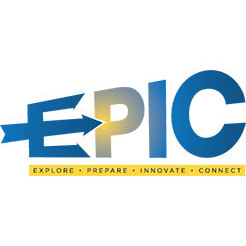Ethical Challenges of Research Program
The purpose of this series is to discuss what the responsible conduct of research involves using a combination of small and large group discussions to foster effective communication and resolve problems. The Division of Graduate Education and Postdoctoral Affairs and the Career Center have collaborated to provide this training to UC San Diego postdoctoral scholars and graduate students.
Contemporary researchers face a variety of challenges, such as reduced federal funding, increasing publication pressures, controversies over conflicts of interest, high profile suspensions of clinical trials, and growing public scrutiny of research methods and outcomes. Success in research and professional development requires awareness of these challenges. It also requires skill in managing them and excellent communication. While professional codes of conduct and principles of responsible conduct of research offer some guidance, they may leave trainees unclear how to proceed in real world disputes or “gray areas.” To address these concerns, the Division of Graduate Education and Postdoctoral Affairs and the Career Center have collaborated to bring UC San Diego postdoctoral scholars and graduate students the Ethical Challenges of Research Series. The purpose of this series is to discuss what the responsible conduct of research involves using a combination of small and large group discussions to foster effective communication and resolve problems.
Completion of each session will result in a certificate of 2 hours of training provided through UC learning, which may be necessary for various graduate and postdoctoral funding sources, such as by NIH training and career development awards or NSF.
All postdoctoral scholars and graduate students are strongly encouraged to participate in these sessions as part of their research training and education.
Attendance and Completion Credit:
- Completion of each session will result in a certificate of 2 hours of training provided through UC learning.
- To receive credit, attendees must follow and met the Ethical Challenges of Research Guidelines for Attendance and Completion. Please review and read carefully to ensure you are able to follow these guidelines and receive completion credit.
2026 Sessions
- All sessions will be held from 11 am – 1 pm IN PERSON in the Horizon Room of the UCSD Career Services Center unless otherwise indicated.
Navigating Conflicts of Interest and Research Security in Biomedical Research |
|---|
|
This workshop is designed to equip participants with an understanding of conflicts of interest (COI) in biomedical research. Participants will explore the ethical, legal, and social implications of COI, with a focus on enhancing research integrity, protecting participant rights, and adhering to institutional and regulatory requirements. Through interactive discussions and review of case studies, attendees will learn to identify, disclose, and manage conflicts to uphold public trust and foster ethical research practices. Date: February 18, 2026 Register in UC Learning Presented by Jennifer Ford |
Ethical Authorship and Publication Practices in Academia |
|
This workshop introduces ethical considerations in academic authorship and publication practices. Aimed at postdoctoral scholars, the session speaks to the conventions and norms of authorship and addresses challenges such as authorship disputes, responsible research reporting, and successfully navigating a rapidly evolving publishing landscape. Participants will also learn to make sense of and utilize impact metrics, avoid unethical journals, and make informed decisions to ensure the integrity and impact of their research. Through interactive discussions and case studies, attendees will strengthen their understanding of ethical principles and develop practical strategies for fostering responsible research practices. Date: May 20, 2026 Register in UC Learning Presented by Allegra Swift |
Cultivating Safe Research Spaces |
|
This interactive workshop is designed to assist attendees in developing the knowledge and skills needed to foster inclusive and resilient research environments. Students will be introduced to principles and related practices that can promote inclusion and belonging in the lab setting. Through engaging discussions, case studies, and practical strategies, attendees will explore how inclusion and belonging shape both research practices and design. Topics include privilege, oppression, and microaggressions, as well as actionable steps to create safe spaces for collaboration and innovation. Participants will leave with a deeper understanding of inclusion and belonging, empowered to identify factors that influence safe vs unsafe research spaces with strategies to drive positive change. Date: July 15, 2026 Register in UC Learning Presented by Devon Tolliver & Madeleine Paley |
The Ethical Duty to Communicate
|
|
Effective research depends on teamwork, and teamwork can only happen when there is open and ongoing communication between all members of a lab. This course will examine common communication pitfalls, how they impact lab cohesion, and will suggest that there is an ethical duty to communicate with each other, even when it is difficult. We will explore strategies to help enhance communication and build better ways of engaging in constructive, not destructive, conflict. Date: August 19, 2026 Register in UC Learning Presented by Nicholas Raichart |
Confronting Misconduct |
|
One of our most stressful roles is the challenge of saying something when we have reason to believe that a colleague has done something wrong. Being a whistleblower is almost never easy. How do we decide when to say something, what should we say, and to whom? And can we do so without derailing our relationships and career? While there are no guarantees, the purpose of this session will be to identify strategies and resources that will minimize the risks you encounter and help you identify actions and steps you can take. Date: November 18, 2026 Register in UC Learning Presented by Christopher Dillon |
| *Dates and location are subject to change. |

Subscribe to the Postdoc listserv to be sent more information and how to register for these and all upcoming events. UCSD email address required for subscription.
